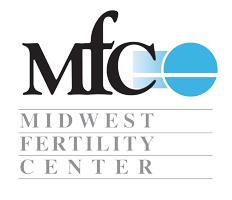Pregnancy is a time of joy, anticipation, and many new experiences. It’s also a period when mothers-to-be are particularly cautious about their health and the well-being of their growing baby. One area of concern for many expectant mothers is the use of over-the-counter (OTC) medications. These medications are readily available and can be helpful in managing common ailments, but their safety during pregnancy requires careful consideration.
Understanding OTC Medications
OTC medications encompass a wide range of products, from pain relievers to antacids, cough syrups to allergy medications. These drugs are available without a prescription, which makes them convenient but also means they should be used with caution, especially during pregnancy.
Safety Concerns
The primary concern with OTC medications during pregnancy is their potential to affect the developing fetus. Some medications can cross the placenta and reach the baby, potentially causing harm. Others may influence maternal health in ways that indirectly impact pregnancy.
General Guidelines
1. Consult Your Healthcare Provider: https://mfcfamily.com/ Before taking any medication, even OTC ones, consult your healthcare provider. They can provide personalized advice based on your medical history and current health status.
2. Read Labels Thoroughly: OTC medications come with labels that detail their uses, dosages, and potential risks. Always read these labels carefully and follow the instructions strictly.
3. Avoid Certain Ingredients: Some ingredients commonly found in OTC medications, such as aspirin and ibuprofen, may not be safe during pregnancy. Opt for medications that contain acetaminophen for pain relief unless otherwise directed by your doctor https://mfcfamily.com/.
4. Consider Natural Remedies: For mild symptoms, consider natural remedies or lifestyle changes that may offer relief without the need for medications. However, even natural remedies should be discussed with your healthcare provider https://mfcfamily.com/.
Common Conditions and OTC Options
– Headaches: Acetaminophen is generally considered safe for occasional use during pregnancy.
– Nausea and Morning Sickness: Vitamin B6, antihistamines like doxylamine, and ginger are often recommended.
– Heartburn: Antacids containing calcium carbonate or magnesium hydroxide are usually safe.
– Allergies: Saline nasal sprays and some antihistamines may be considered under medical supervision.
While many OTC medications are safe for occasional use during pregnancy, it’s crucial to exercise caution and seek professional advice. Every pregnancy is unique, and what works for one woman may not be suitable for another. Your healthcare provider https://mfcfamily.com/ can help you navigate the complexities of medication safety, ensuring that both you and your baby stay healthy throughout this exciting journey.
By staying informed and proactive, you can confidently manage minor health issues while prioritizing the well-being of your pregnancy. Always remember: when in doubt, consult your doctor https://mfcfamily.com/. They are your best resource for ensuring a safe and healthy pregnancy.

